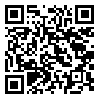BibTeX | RIS | EndNote | Medlars | ProCite | Reference Manager | RefWorks
Send citation to:
URL: http://ijpcp.iums.ac.ir/article-1-258-en.html
Abstract
Objectives: The present research is a qualitative study of the behavioral disorders of slow-learning female school children.
Method: 24 students were assessed through a Rutter Behavioral Questionnaire (Teacher’s From). They suffered from behavioral disorders and had been referred to occupational therapy clinic by their teachers. They were 6-8 years old. On the basis of the Questionnaire, 18 were diagnosed with behavioral disorders. Thus group sessions were held with their families and teachers. Furthermore, the children’s behaviors were also observed in their educational environment.
Findings: The findings indicated that the most common behavioral problems among the slow-learning students were dependence on mother for homework and habitual behaviors (e.g. nail biting, lip sucking, pencil biting etc). Moreover, different forms of maladaptive behaviors were noticed in those children these behaviors were geared toward reducing anxiety stemming from failure in obtaining both scores of 20 (A+) and educational advancements.�
Results: The common behavioral disorders which are accompanied by slow-learning can be easily identified and treated through consulting parents and teachers.
Received: 2007/11/3 | Published: 2002/05/15
| Rights and permissions | |
 |
This work is licensed under a Creative Commons Attribution-NonCommercial 4.0 International License. |



